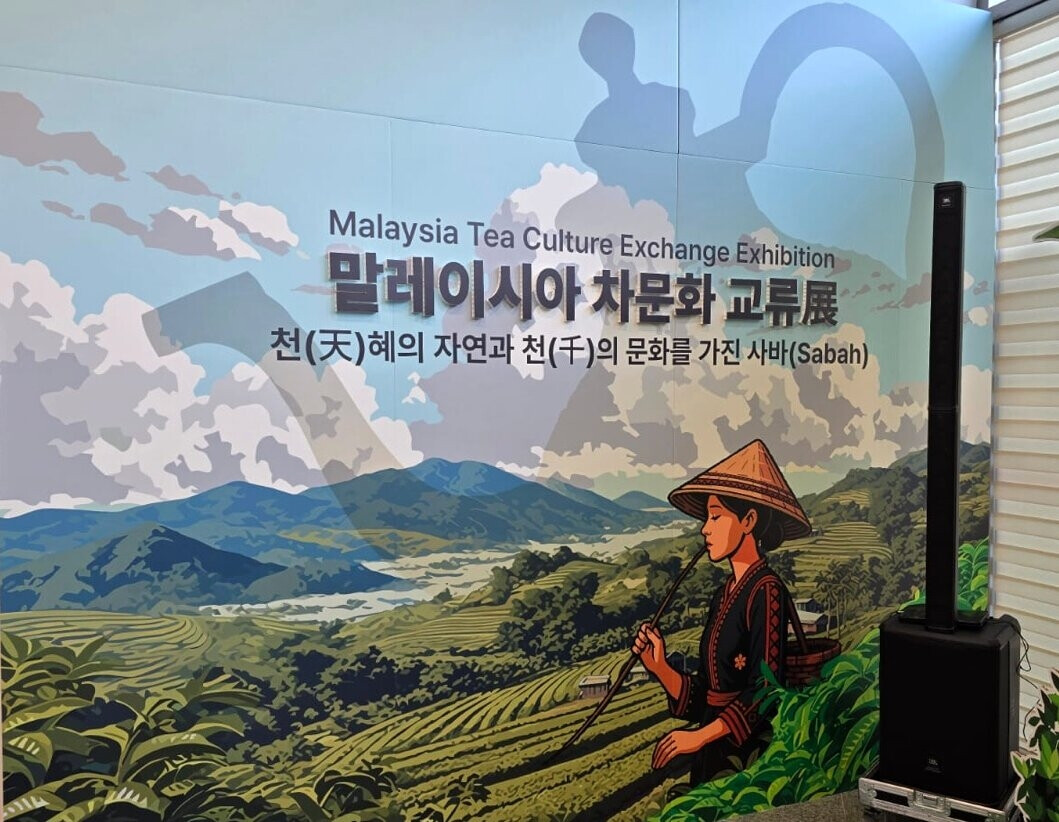
Boseong County, South Jeolla Province, South Korea – The verdant tea fields of Boseong, renowned as the "tea capital" of Korea, recently played host to a significant cultural exchange with the Malaysian state of Sabah, further solidifying the burgeoning relationship between the two regions. A delegation from Sabah, led by Alesiah Sion, the Permanent Secretary of the Sabah State Ministry of Tourism, Culture and Environment, and Kamilia Hanom Abdul Halim, the Director of Tourism Malaysia Seoul Office, made an official visit to the 48th Boseong Dahyang Tea Festival, held from May 1st to 3rd. This exchange, announced by the Tourism Malaysia Seoul Office on May 7th, underscores the power of cultural diplomacy and the potential of shared traditions to foster international goodwill and promote tourism.
The initiative for this cultural bridge-building was significantly spurred by the recent introduction of premium matcha produced in Boseong to the menu of Ediya Coffee, a popular coffee chain in Kuala Lumpur, Malaysia, at the end of the previous year. This successful market entry served as a catalyst, highlighting the appeal of Boseong's high-quality tea beyond Korean borders and paving the way for deeper cultural engagement.
The 18-member Sabahan delegation actively participated in the vibrant atmosphere of the Boseong Dahyang Tea Festival, a celebrated annual event that showcases the rich history and cultural significance of tea cultivation in the region. The delegation contributed to the festival's diverse program by presenting captivating traditional Malaysian performances, offering festival attendees a glimpse into the unique cultural heritage of Sabah. This reciprocal sharing of cultural expressions served as a powerful tool for fostering mutual understanding and appreciation between the people of Boseong and Sabah.
The Boseong Dahyang Tea Festival itself is a significant cultural event in South Korea, drawing visitors from across the nation and beyond. Held amidst the picturesque backdrop of Boseong's sprawling green tea plantations, the festival celebrates the area's centuries-long tradition of tea cultivation. It features a variety of activities, including traditional tea ceremonies, tea-making demonstrations, tea-themed culinary experiences, folk performances, and opportunities to explore the stunning tea fields. The festival not only highlights the economic importance of the tea industry to the region but also underscores its deep cultural roots and its role in Korean heritage.
Sabah, located on the northern part of the island of Borneo in Malaysia, boasts its own rich cultural tapestry and natural beauty. Known for its diverse indigenous cultures, lush rainforests, and iconic Mount Kinabalu, Sabah is a significant tourist destination in Southeast Asia. While not traditionally known for large-scale tea cultivation in the same way as Boseong, Sabah shares a connection to tea as a widely consumed beverage and a part of its hospitality and social customs. This shared appreciation for tea provided a natural point of connection for the cultural exchange.
Director Kamilia Hanom Abdul Halim of Tourism Malaysia Seoul Office emphasized the strategic importance of this exchange, stating her hope that it would "establish itself as a model for sustainable festival diplomacy ahead of Visit Malaysia Year 2026." This statement highlights the broader tourism objectives underpinning the cultural exchange. By fostering positive relationships and increasing awareness of each other's cultural attractions, both Boseong and Sabah aim to stimulate tourism between South Korea and Malaysia. The "Visit Malaysia Year 2026" initiative underscores Malaysia's commitment to attracting international tourists, and cultural exchanges like this play a crucial role in building connections and encouraging travel.
The concept of "festival diplomacy" recognizes the power of cultural events to transcend political boundaries and foster goodwill between nations and regions. By participating in each other's festivals, Boseong and Sabah are not only celebrating their unique cultural identities but also creating opportunities for people-to-people interactions and the development of lasting relationships. This form of cultural exchange can be particularly effective in promoting understanding and breaking down stereotypes.
The successful introduction of Boseong matcha in Kuala Lumpur prior to this festival exchange further underscores the potential for economic and cultural synergy between the two regions. As Korean culture continues to gain popularity globally, the demand for high-quality Korean products, including tea, is also increasing. This provides an opportunity for regions like Boseong to expand their international reach and for Malaysia to benefit from the appeal of Korean products.
Looking ahead, this initial cultural exchange through the Boseong Dahyang Tea Festival could pave the way for further collaborations between Boseong and Sabah in various fields, including tourism, agriculture, and cultural preservation. The shared interest in tea provides a strong foundation for building a lasting partnership that benefits both regions economically and culturally. The exchange serves as a testament to the unifying power of cultural traditions and the potential for regional collaborations to contribute to broader international understanding and cooperation.
[Copyright (c) Global Economic Times. All Rights Reserved.]



























